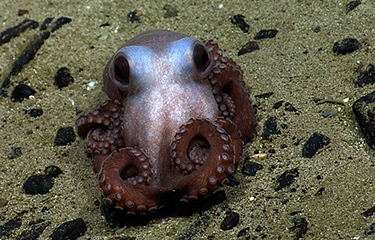The administration of U.S. President Joe Biden has proposed an updated management plan for the Northeast Canyons and Seamounts Marine National Monument, a 4,913-square-mile area located about 130 miles from Cape Cod, Massachusetts, U.S.A.
“President Biden’s reaffirmation of the need to develop a management plan for the Northeast Canyons and Seamounts Marine National Monument further solidifies his commitment to protecting our most vital waters and the marine life that thrives in it,” NOAA Fisheries Assistant Administrator Janet Coit said.
The Northeast Canyons and Seamounts Marine National Monument was established in 2016 by presidential proclamation under the Antiquities Act under the administration of U.S. President Barack Obama. It was the first marine monument designated by the U.S. in the Atlantic Ocean. While former President Donald Trump rescinded Obama’s ban on commercial fishing within the monument in 2020, Biden restored those rules in October 2021.
The monument has continued to face opposition from some in the commercial fishing sector.
“This is an unfortunate decision that is opposed not only by those affected in the commercial fishing industry, but by all eight fishery management councils and NOAA Fisheries,” Bob Vanasse of Saving Seafood, an industry advocacy group, said in response to Biden’s decision. “There is no scientific justification to prohibit commercial fishing while allowing recreational fishing. While the Biden-Harris administration has claimed decisions will be based on science, and not on who has the stronger lobby, this decision shows otherwise."
A lawsuit to block the commercial fishing ban was rejected by the courts in 2020.
A 2022 study published in Nature found that the ban had little to no negative impact for squid, butterfish, mackerel, or tuna fisheries.
The draft management plan lays out the roles and responsibilities for U.S. government agencies and sets goals for properly caring for the monument’s ecosystem and natural resources. The government also plans to undertake an environmental assessment to evaluate the impacts of its management plan.
NOAA Fisheries will also launch the rulemaking process this year that will incorporate the monument and its prohibitions on commercial fishing into the Magnuson-Stevens Act.
“The administration’s continued commitment to the establishment of this monument helps safeguard its unique ecosystem, rich marine life, and natural and historical resources for future generations,” U.S. Fish and Wildlife Service Director Martha Williams said. “Input from the public and a wide range of partners and other interested parties on this draft plan will help ensure monument managers can protect and conserve resources, engage the community as stewards of this dynamic system, and better understand monument ecosystems in a changing climate.”
Coit said the management plan is part of the Biden administration’s America the Beautiful Initiative, which includes Biden’s 30 by 30 initiative to conserve and restore 30 percent of U.S. lands and waters by 2030.
The government is accepting public comments on the draft plan through 26 October, with an expectation of finalizing the plan in early 2024.
Photo courtesy of NOAA Fisheries







